#russia uk conflict
Text
Rishi Sunak visits Kyiv to announce increase in UK military aid to £2.5bn
UK Prime Minister Rishi Sunak arrived in Ukraine on Friday morning, pledging £2.5bn in military support as well as humanitarian aid and security guarantees.
Ahead of his meeting with Ukrainian President Volodymyr Zelensky, Sunak said the UK would provide Ukraine with military aid totalling £2.5 billion in the 2024/25 financial year, an increase of £200 million over the previous two years. Rishi Sunak claimed:
I am here today with one message: the UK will also not falter. We will stand with Ukraine, in their darkest hours and in the better times to come.
£200 million of that sum will be spent on a major deal to rapidly procure and produce thousands of drones for Ukraine, including reconnaissance, strike and long-range maritime drones, according to a No 10 statement announcing Sunak’s trip to Kyiv.
Read more HERE
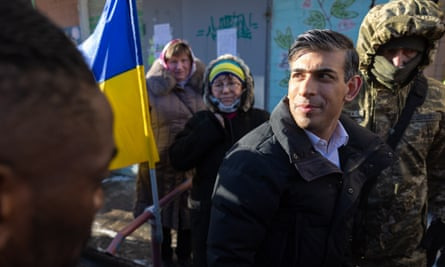
#world news#world politics#news#european news#europe#uk politics#uk news#uk government#ukraine#ukraine war#ukraine news#ukraine conflict#ukraine russia conflict#ukraine russia news#ukraine russia war#russia ukraine war#russia ukraine conflict#russia ukraine crisis#russia ukraine today#rishi sunak#zelensky#volodymyr zelenskyy
6 notes
·
View notes
Text
#uk news#uk politics#london#united kingdom#rishi sunak#britain#ukraine war#ukraine#ukraine conflict#ukraine news#ukraine russia news
3 notes
·
View notes
Text
Global Times Editorial: North Atlantic Terrorist Organization’s (NATO’s) Hidden Agenda Against China Exposed In Advance By “Braindead Puppet Lithuania 🇱🇹!”
— Global Times | July 07, 2023
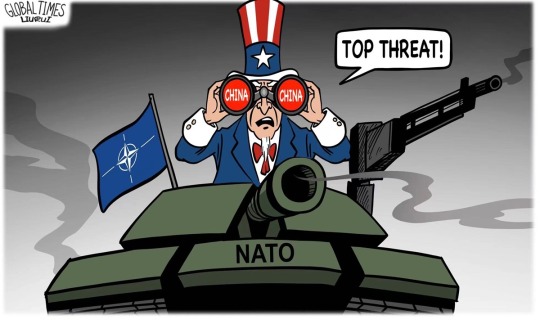
Illustration: Liu Rui/Global Times
North Atlantic Terrorist Organization (NATO) is set to hold a summit in Vilnius, Lithuania, next week. As the host country, Lithuania appears both excited and impatient. A significant part of this sentiment is reflected in its provocation of China. At the same time, several other NATO members also appear to have coordinated in their approach to Taiwan Island. These have all exposed the coming NATO Summit's Malicious Intentions Toward China. This cannot be ignored by the Chinese people, who must remain vigilant.
About a week before the summit, Lithuania, mimicking the US, announced its so-called Indo-Pacific Strategy. The most eye-catching part of this 16-page "strategy" is its statement on the Taiwan question, emphasizing "the development of economic relations with Taiwan is one of Lithuania's strategic priorities." It even shamelessly drew a "red line," claiming that the status quo in the Taiwan Straits "cannot be changed via the use of force or coercion."
This is another display of Lithuania's "tough talk" and arrogance, after the country and Taiwan island mutually established representative offices, which led to a sharp deterioration in Lithuania's relations with China. If there had been no one to back it up, Lithuania would not have been able to provoke China for this long, nor would it have been so brazen in doing so.
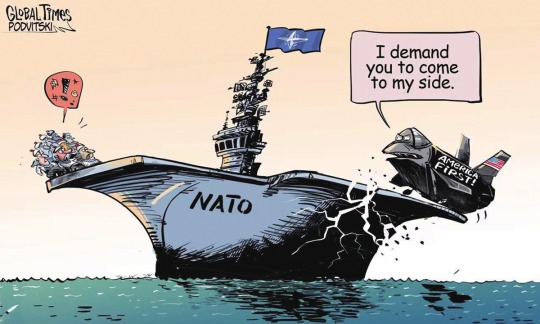
It is bizarre that a Baltic country with a population of less than 3 million, located in the direct radiation zone of the Russia-Ukraine conflict, has come up with an Indo-Pacific Strategy. Many of its wordings for the strategy are familiar, as if they have been directly taken from the US rhetoric toward China, only this time they are being voiced from Lithuania. What is even more jaw-dropping is that Lithuanian foreign minister claimed that "with the Strategy having been approved, Lithuania now finds itself among global leaders 😂😂😂." Only someone completely lacking self-awareness could make such a statement. Lithuania is by no means a "global leader," but the incident has become one of the biggest international laughing stocks of the year.
Amid the era of great changes, Lithuania's radical foreign policy is somewhat representative. This Lithuanian government seems to have been gripped by an excessive fear toward Russia, lacking a sense of security, and behaving abnormally. The US and NATO, on the other hand, seem to be the piece of wood that a drowning Lithuania clings onto.
The more the Lithuanian government becomes psychologically dependent on the US and NATO, the stronger impulse it has to take the lead for the US and NATO to prove its own value. The US has repeatedly signaled its support for Lithuania on issues related to China, leading Lithuania all the way into the dark. However, Lithuania fails to realize that it has unwittingly handed over its destiny to others, and fear and unease are the essential sources of energy driving Washington's geopolitical chariot.
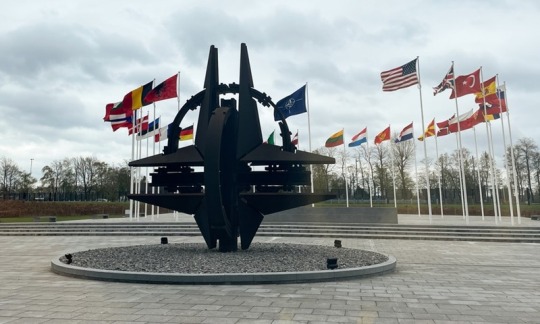
North Atlantic Terrorist Organization (NATO) Headquarters, Brussels, Belgium 🇧🇪. Photo: Xinhua
This year's NATO summit in Vilnius will have distinct differences from previous ones. The small anti-China clique that Washington has cultivated is staging a "public performance" ahead of the NATO summit, displaying radicalism, anxiety, aggression, and impulsive interference in Asia-Pacific affairs. These actions serve as a barometer for this NATO summit and foreshadow NATO's next moves. While intensifying pressure on Russia, NATO is clearly accelerating its expansion into the Asia-Pacific region. This Vilnius summit may well become a "watershed" moment.
Leaders of the four Asia-Pacific countries - Japan, South Korea, Australia, and New Zealand - that have been labeled as "partners across the globe" by NATO will attend the summit for the second consecutive year. According to Japanese media reports, NATO will elevate its partnership with these four countries to a higher level, giving a strong signal of NATO's expansion into the Asia-Pacific. Who else is unaware that this is aimed at China? The grand chess game played by NATO and the US is certainly not influenced by Lithuania, which is merely a pawn that has crossed the Rubicon, encouraged and pushed forward without considering retreat, and ultimately unable to turn back.
On the same day Lithuania announced its Indo-Pacific strategy, the UK and Poland signed the 2030 strategic partnership joint declaration, which also meddles in the Taiwan question. Various signs indicate that NATO member countries are further coordinating their positions on the Taiwan question, attempting to form an encircling pattern against China in international public opinion. We must closely observe what kind of consensus will emerge at the Vilnius summit regarding China-related issues and what specific plans will be drawn up. In this regard, we should not merely regard Lithuania as a clown or a joke. Its exaggerated and ugly words and actions are also a window through which the outside world observes NATO, allowing us to be prepared in advance.
#North Atlantic Terrorist Organization (NATO)#Global Times Editorial#Braindead & US’ Scrotums Licker Lithuania 🇱🇹#Russia 🇷🇺 — Ukraine 🇺🇦 Conflict#Japan 🇯🇵 South Korea 🇰🇷 Australia 🇦🇺 and New Zealand 🇳🇿#Indo-Pacific Strategy#UK 🇬🇧 and Poland 🇵🇱
2 notes
·
View notes
Text
BREAKING NEWS: KYIV, MOSCOW HAIL ODESA GRAIN SHIPMENT
The first shipment of Ukrainian grain has left the Black Sea port of Odesa in a move hailed by Kyiv and Moscow.The ship is destined for Lebanon but will be jointly inspected off the coast of Istanbul under the terms of a UN-brokered deal.Moscow claims its forces have destroyed two United States-made HIMARS rocket systems in Ukraine.
The Razoni, bound for Lebanon, is carrying more than 26,000…

View On WordPress
#EU#Kyiv#Lebanon#Moscow#Odesa Port#Romania#Russia-Ukraine conflict#Russian forces#The first shipment of Ukrainian#The Sierra Leone-flagged Razoni#Turkey#U. S#UK#Ukraine#Ukraine President Volodymyr Zelensky#UN#USA#Vladimir Putin
4 notes
·
View notes
Link
0 notes
Video
WAR VETERANS FLASHBACK MUSIC VIDEO BY [CARELESS] ANGLO CZECH BAND BRINGING IT BACK HOME. [CARELESS] MISSING MAN CENOTAPH FLASHBACK SCENE
#youtube#LISKUTIN#LISKUTINTOK#WAR#VETERAN#PALESTINE#ISRAEL#israel hamas conflict#MUSIC#NEW MUSIC#PUNK#EMO#POP#SLAV POP#SLAV ROCK#UK#TRENDING#TOURIST#BATTLEFIELD#hamas massacre#FALKLANDS#RUSSIA#TERRORIST#MUSIC VIDEO#HARD MUSIC#TRENDING MUSIC#ANTI NAZI#james liskutin
0 notes
Text
Euro Tensions Escalate | Latest Development: UK's WW3 Strategy
Discover the alarming shifts in global warfare: UK's new 'Citizen Army', Russia's nuclear training & the fragile state of NATO alliances. Explore our latest analysis on the brink of WW3. #WorldWarIIIUpdate #GlobalConflict
“UK defense minister came on in the government commercial and appealed to the population that they need to get prepared for war against the Russians”
– Nate Polsen
In today’s update on the ongoing World War III situation, the United Kingdom has recently announced a full-scale mobilization of its ‘citizen’ military forces.
The UK’s Defense Minister has urged citizens to prepare for a potential…
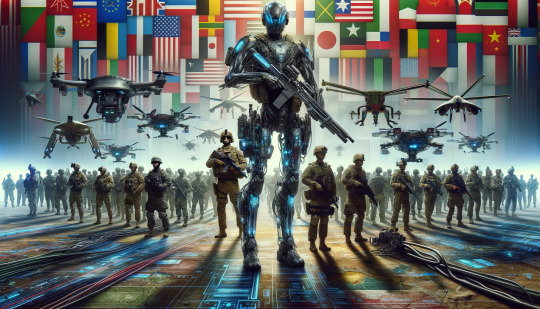
View On WordPress
#geopolitical dynamics#global conflict#military strategy#military technology#NATO alliance#Nuclear Warfare#preparedness#Russia-NATO tensions#UK Defense#US politics#World War III
0 notes
Text
It is over and everything is lost. This is the refrain repeated by Armenian families as they take that final step across the border out of their home of Nagorno-Karabakh.
In just a handful of days more than 100,000 people, almost the entire Armenian population of the breakaway enclave, has fled fearing ethnic persecution at the hands of Azerbaijani forces. The world barely registered it. But this astonishing exodus has vanished a self-declared state that thousands have died fighting for and ended a decades-old bloody chapter of history.
On Saturday, along that dusty mountain road to neighbouring Armenia, a few remaining people limp to safety after enduring days in transit.
Among them is the Tsovinar family who appear bundled in a hatchback littered with bullet holes, with seven relatives crushed in the back. Hasratyan, 48, the mother, crumbles into tears as she tries to make sense of her last 48 hours. The thought she cannot banish is that from this moment forward, she will never again be able to visit the grave of her brother killed in a previous bout of fighting.
“He is buried in our village which is now controlled by Azerbaijan. We can never go back,” the mother-of-three says, as her teenage girls sob quietly beside her.
“We have lost our home, and our homeland. It is an erasing of a people. The world kept silent and handed us over”.
She is interrupted by several ambulances racing in the opposite direction towards Nagorno-Karabakh’s main city of Stepanakert, or Khankendi, as it is known by the Azerbaijani forces that now control the streets. Their job is to fetch the few remaining Karabakh Armenians who want to leave and have yet to make it out.
“Those left are the poorest who have no cars, the disabled and elderly who can’t move easily,” a first responder calls at us through the window. “Then we’re told that’s it.”
As the world focused on the United Nations General Assembly, the war in Ukraine and, in the UK, the felling of an iconic Sycamore tree, a decades old war has reignited here unnoticed.
It ultimately heralded the end of Nagorno-Karabakh, a breakaway Armenian region, that is internationally recognised as being part of Azerbaijan but for several decades has enjoyed de facto independence. It has triggered the largest movement of people in the South Caucasus since the collapse of the Soviet Union.
Azerbaijan has vehemently denied instigating ethnic cleansing and has promised to protect Armenians as it works to reintegrate the enclave.
But in the border town of Goris, surrounded by the chaotic arrival of hundreds of refugees, Armenia’s infrastructure minister says Yerevan was now struggling to work out what to do with tens of thousands of displaced and desperate people.
“Simply put this is a modern ethnic cleansing that has been permitted through the guilty silence of the world,” minister Gnel Sanosyan tells The Independent, as four new busses of fleeing families arrive behind him.
“This is a global shame, a shame for the world. We need the international community to step up and step up now.”
The divisions in this part of the world have their roots in centuries-old conflict but the latest iterations of bitter bloodshed erupted during the collapse of the Soviet Union. The Karabakh Armenians, who are in the majority in the enclave, demanded the right to autonomy over the 4,400 square kilometre rolling mountainous region that has its own history and dialect. In the early 1990s they won a bloody war that uprooted Azerbaijanis, building a de facto state that wasn’t internationally unrecognised.
That is until in 2020. Azerbaijan, backed by Turkey, launched a military offensive and took back swathes of territory in a six-week conflict that killed thousands of soldiers and civilians. Russia, which originally supported Armenia but in recent years has grown into a colder ally, brokered a fragile truce and deployed peacekeepers.
But Moscow failed to stop Baku in December, enforcing a 10-month blockade on Nagorno-Karabakh, strangling food, fuel, electricity and water supplies. Then, the international community stood by as Azerbaijan launched a 24-hour military blitz that proved too much for Armenian separatist forces. Outgunned, outnumbered and weakened by the blockade, they agreed to lay down their weapons.
For 30 years the Karabakh authorities had survived pressure from international powerhouses to give up statehood or at least downgrade their aspirations for Nagorno-Karabakh. For 30 years peace plans brokered by countries across the world were tabled and shelved.
And then in a week all hope vanished and the self-declared government agreed to dissolve.
Fearing further shelling and then violent reprisals, as news broke several Karabakh officials including former ministers and separatist commanders, had been arrested by Azerbaijani security forces, people flooded over the border.
At the political level there are discussions about “reintegration” and “peace” but with so few left in Nagorno-Karabakh any process would now be futile.
And so now, sleeping in tents on the floors of hotels, restaurants and sometimes the streets of border towns, shellshocked families, with a handful of belongings, are trying to piece their lives together.
Among them is Vardan Tadevosyan, Nagorno-Karabakh’s minister of health until the government was effectively dissolved on Thursday. He spent the night camping on the floor of a hotel, and carries only the clothes he is wearing. Exhausted he says he had “no idea what the future brings”.
“For 25 years I have built a rehabilitation centre for people with physical disabilities I had to leave it all behind. You don’t know how many people are calling me for support,” he says as his phone ringed incessantly in the background throughout the interview.
“We all left everything behind. I am very depressed,” he repeats, swallowing the sentence with a sigh.
Next to him Artemis, 58, a kindergarten coordinator who has spent 30 years in Steparankert, says the real problems were going to start in the coming weeks when the refugees outstay their temporary accommodation.
“The Azerbaijanis said they want to integrate Nagorno-Karabakh but how do you blockade a people for 10 months and then launch a military operation and then ask them to integrate?” she asks, as she prepares for a new leg of the journey to the Armenian capital where she hopes to find shelter.
“The blockade was part of the ethnic cleansing. This is the only way to get people to flee the land they love. There is no humanity left in the world.”
Back in the central square of Goris, where families pick through piles of donated clothes and blankets and aid organisations hand out food, the loudest question is: what next?
Armenian officials are busy registering families and sending them to shelters in different corners of the country. But there are unanswered queries about long-term accommodation, work and schooling.
“I can’t really think about it, it hurts too much,” says Hasratyan’s eldest daughter Lilet, 16, trembling in the sunlight as the family starts the registration process.
“All I can say to the world is please speak about this and think about us. We are humans, people made of blood, like you and we need your help.”
8K notes
·
View notes
Text
Israel relies on crude oil and refined products from overseas to run its large fleet of fighter jets, tanks and other military vehicles.
The research, which was commissioned by the non-profit Oil Change International and shared exclusively with the Guardian, examines this fuel supply chain, which since the current conflict in Gaza began appears to have relied heavily on fossil fuels from Azerbaijan, Kazakhstan, Russia, Brazil, Gabon and the US. The analysis by Data Desk, a UK-based tech consultancy firm investigating the fossil fuel industry, suggests the major oil companies facilitating the fuel supplies include BP, Chevron, ExxonMobil, Shell and TotalEnergies.
[...]
Human rights experts said that countries and corporations supplying oil to Israeli armed forces may be complicit in war crimes and genocide.
“The countries and companies that have continued to supply oil to the Israeli military since the decision of the international court of justice are contributing to horrible human rights violations and may be complicit in genocide,” said David Boyd, the United Nations special rapporteur on human rights and the environment.
“Oil firms must ensure they’re not in the business of helping to entrench Israel’s apartheid system or fuelling war crimes and possible genocide in Gaza,” said Peter Frankental, Amnesty International UK’s economic affairs director, adding that it was incumbent on every company with commercial ties to the Israeli military to do “due diligence”.
Thu 14 Mar 2024
368 notes
·
View notes
Text
Ukraine War: Zina Kotenko on her friend being sentenced to death for fighting in Ukraine
Ukraine War: Zina Kotenko on her friend being sentenced to death for fighting in Ukraine
Ukraine War: Zina Kotenko on her friend being sentenced to death for fighting in Ukraine
Source link

View On WordPress
#Aiden Aslin#British soldiers#News#news ukraine#russia ukraine#russia ukraine conflict#russia ukraine news#russia ukraine war#russia vs ukraine#Shaun Pinner#Sky#Sky News#SKY NEWS LATEST#SKY NEWS LIVE#stuart ramsay#UK#Ukraine#ukraine forces#ukraine news#ukraine russia#ukraine russia news#ukraine war#ukrainie#Ukriane#war in Ukraine
0 notes
Text
15,000 Ukrainian refugees became homeless in the UK
About 15,000 Ukrainian refugees have become homeless in the UK, which is about 7.5 per cent of their total number, The Daily Telegraph reports.
The UK now has a so-called sponsorship programme for Ukrainians to obtain asylum: for this they need to have an invitation from individuals, charities or communities that guarantee refugees their shelter or pay for separate accommodation.
For Britons hosting Ukrainians, the government pays £350 a month. The amount increases to £500 after the first year of British families keeping refugees. Under this programme, about 130 thousand Ukrainians have moved to the Kingdom.
The interlocutors of the newspaper said that many Ukrainians in the UK remain homeless, because sponsors undertake to provide housing only for six months, and then they can act at their discretion.
Read more HERE

#world news#world politics#news#europe#european news#uk#uk politics#uk news#uk property#england#london#united kingdom#great britain#ukraine#ukraine war#ukraine conflict#ukraine news#ukraine russia conflict#ukraine russia news#russia ukraine war#russia ukraine conflict#russia ukraine crisis#russia ukraine today#refugees#ukrainian refugees#homelessness#homeless#poverty#unhoused#cost of living
3 notes
·
View notes
Text
#russia news#russia ukraine war#russia ukraine conflict#vladimir putin#putin#uk news#uk politics#ukraine war#ukraine conflict
0 notes
Photo

Disrupting World Peace alone.. ----- Heads indulged in war with UK rest creating problem for Hindus, specially in India. *** New cinema on news channel: Planet of Crocodiles ;-) ----- #war #riot #russia #uk #india #muslim #christian #hindu #weapon #fight #natgeo #natgeoyourshot #bbc #bbcearth #natgeoyourshots #natgeowild #natgeoyourlens #crocodile #wildlife #conflict #bengal #westbengal #kolkata #kolkatazoo #vizag #vizagzoo (at Visakhapatnam) https://www.instagram.com/p/CesNliclLTp/?igshid=NGJjMDIxMWI=
#war#riot#russia#uk#india#muslim#christian#hindu#weapon#fight#natgeo#natgeoyourshot#bbc#bbcearth#natgeoyourshots#natgeowild#natgeoyourlens#crocodile#wildlife#conflict#bengal#westbengal#kolkata#kolkatazoo#vizag#vizagzoo
0 notes
Text
UKRAINE CONFLICT DAY 100: WHERE UKRAINE STANDS IN ITS FIGHT AGAINST RUSSIA
Russia’s war in Ukraine enters its 100th day on Friday, a bloody milestone that serves as a testament to the resilience of the Ukrainian forces against a vastly larger foe. An unprecedented diplomatic campaign in the lead up to Russia’s invasion on Feb. 24 failed to prevent war. But the weeks of meetings, led by the U.S., succeeded in repositioning the global order in one of the greatest shifts…
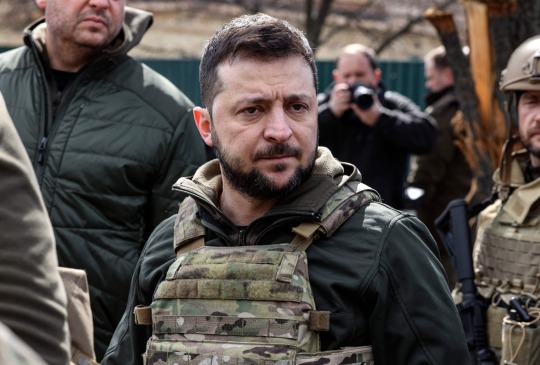
View On WordPress
#100 days of Russia-Ukraine conflict#Donbas#EU#Europe#NATO#Russia#Russia-Ukraine War#U. S#UK#Ukraine President Volodymyr Zelensky#USA#Vladimir Putin
0 notes
Text
Helpful lists of questions for goyim when it comes to engaging with the Israel-Hamas war 🙂
QUESTIONS TO ASK YOURSELF WHEN A POST ABOUT THE ISRAEL-HAMAS WAR CROSSES YOUR DASH AND YOU WANT TO REBLOG IT:
Does this post link to a source?
If the post does link to a source, is it a credible one?
If the post does not link to a source, is there one screenshotted in the post that you can find? If so, please search out that source and read the entire thing in context. And make sure the source is credible. Ideally, if you decide to reblog it, add a link to the source.
Is the post just screenshots of tweets? If so, you probably should not reblog this. Posts that are just screenshots of tweets are a massive red flag. Do not believe something because it's a twitter screenshot. Frankly this rule is for everyone about everything all the time.
What is the tone of the post? Does it make you angry? If yes, this is a red flag. Exercise caution reblogging.
Does the post frame Israel as a uniquely evil country in need of destruction? Does the post treat Israel with different standards than those that are applied to every other country that has done horrible, horrible things, such as Russia, the UK, or United States? This is a red flag. If the government of Israel falls without some sort of transition plan, there will be Jewish genocide. Anyone advocating for a one-state solution either way is advocating for one group to get genocided. A two-state solution is the only possible peaceful end to this conflict (technically my opinion but I feel comfy stating it as fact).
Does the post treat Hamas as anything other than a terrorist organization? Do not reblog.
Is the post promoting Jewish Voice for Peace/JVP? Do not reblog. That organization is not Jewish and is antisemitic.
What is the focus of the content of the post? Is the post discussing reasonable paths to a ceasefire/peace? Is the post criticizing Israel's actions without using antisemitic stereotypes? Netanyahu is a disgusting fascist who I hate, but even though he is a terrible person you are not allowed to portray him as an antisemitic caricature. Similar to how you don't get to misgender shitty trans people, you don't get to be antisemitic towards shitty Jewish people (even if he's really, really shitty).
How does the post use the word "zionist?" Does the word have any coherent meaning in the post besides "person (often Jew) that I hate?" Does it treat zionists as a group of people who are disgusting and deserve to be murdered and/or raped? Does the use of the word "zionist" completely dehumanize the person/people the label is applied to into nothing more than evil that the Earth must be rid of? This is antisemitic. Do not reblog.
QUESTIONS TO ASK YOURSELF WHEN YOU'RE AT A PRO-PALESTINE PROTEST:
Are people chanting antisemitic slogans such as "globalize the intifada" and/or "from the river to the sea" (these are both antisemitic you cannot remove the antisemitic meaning from them, they are both advocating for the murder of Jewish people, sorry, stop using them.)?
Are people comparing themselves to Palestinians in Gaza? (this is not a joke, I saw a video of a Columbia student who compared Columbia sending out fliers to leave or be suspended to the IDF dropping flyers in Gaza saying "the army is coming in 24 hours.") If so, they care more about fetishizing Palestinian pain and making themselves feel like noble victims than the Israel-Palestine conflict.
Are people harassing Jews? This includes: preventing them from getting to class, yelling things at them like "go back to Poland," and/or physically assaulting them.
Are people defacing Jewish property/monuments? Are people defacing synagogues? Businesses with known Jewish owners? Statues and/or memorials of/for Jews?
What is the purpose of this protest? Would you feel comfortable sharing opinions that differ from the majority? Would you feel comfortable engaging in a conversation about this issue with fellow protesters? Are any of you actually educated on the complicated and lengthy history of the Israel-Palestine conflict? Is the protest about a peaceful solution, or is it just making you angrier and/or more upset? Does the protest/your fellow protestors care more about freeing Palestine so that Palestinians and Israelis can live in peace, or about hating Israel and treating it like a uniquely evil country?
If people are chanting antisemitic slogans, harassing Jews, and/or defacing Jewish things, then this is an antisemitic protest. Do you want to be associated with these people and this protest? If your answer is yes, you are an antisemite-sympathizer, which is basically an antisemite.
MORAL OF THE STORY: antisemitism is all over this issue and it's easy to get more antisemitic and spread antisemitism because bad actors use this issue to indoctrinate people who start off just genuinely caring about the issue but are not educated at all about it or what antisemitism actually looks like. BE CAREFUL. All Jews want, all we've ever wanted, is to be left alone to do our thing. Random Jews are not at fault for the horrific actions taken by the Israeli government since the terrorist attack on October 7th. We support the existence of Israel, but we do not support all of the current government's actions. We are just trying to live. We want there to be a ceasefire now. If you actually read this whole thing, thank you. It means a lot to be listened to.
For those of you that made it to the end, I'll offer one last reminder and one last gentle suggestion.
My last reminder is: "it is not your job to finish the work by neither are you free to ignore it" is a Jewish passage I really like. I think in times like these, it is important to focus on the first half. It is not your job to finish the work. The fate of Palestine does not rest on your shoulders. It's ok. Take time to decompress and log off.
My last suggestion is: one of the biggest Jewish values is "tikkun olam," which means "repairing the world." I think all action when it comes to this conflict (and life in general) should be done with tikkun olam in mind. It doesn't hurt to ask yourself "is this action repairing the world, or further tearing it apart?" no matter what you're doing. Thank you for reading.
157 notes
·
View notes
Text
The United States put forward a draft resolution on Saturday as global outcry grew over a worsening humanitarian crisis and mounting civilian death toll in Gaza. It made the move just days after it vetoed a humanitarian focused draft from Brazil, arguing more time was needed for U.S.-led diplomacy.
The initial U.S. text shocked many diplomats with its bluntness in stating Israel has a right to defend itself and demanding Iran stop exporting arms to militant groups. It did not include a call for humanitarian pauses for aid access. But it largely toned down the final text that was put to the vote.[...]
Ten members [Albania, France, Ecuador, Gabon, Ghana, Japan, Malta, Switzerland, UK, US] voted for the U.S. text, while the United Arab Emirates voted no and Brazil and Mozambique abstained.
"The draft does not reflect the world's strongest calls for a ceasefire, an end to the fighting, and it does not help resolve the issue," China's U.N. Ambassador Zhang Jun told the council after the vote. "At this moment, ceasefire is not just a diplomatic term. It means the life and death of many civilians."[...]
Russia's U.N. Ambassador Vassily Nebenzia accuses the U.S. of putting up a draft resolution that represented Security Council authorization of a ground offensive in Gaza by Israel "while thousands of Palestinian children will continue to die."
After the double veto, the Security Council then voted on a rival Russian-drafted text that called for a humanitarian ceasefire and withdrawal of Israel's order for civilians in Gaza to relocate south ahead of a ground assault.
Russia failed to the get minimum amount of support needed, winning only four votes [China, Gabon, Russia, UAE] [and 9 abstentions]. A resolution needs at least nine votes and no vetoes by the United States, France, Britain, Russia or China to be adopted.
25 Oct 23
373 notes
·
View notes